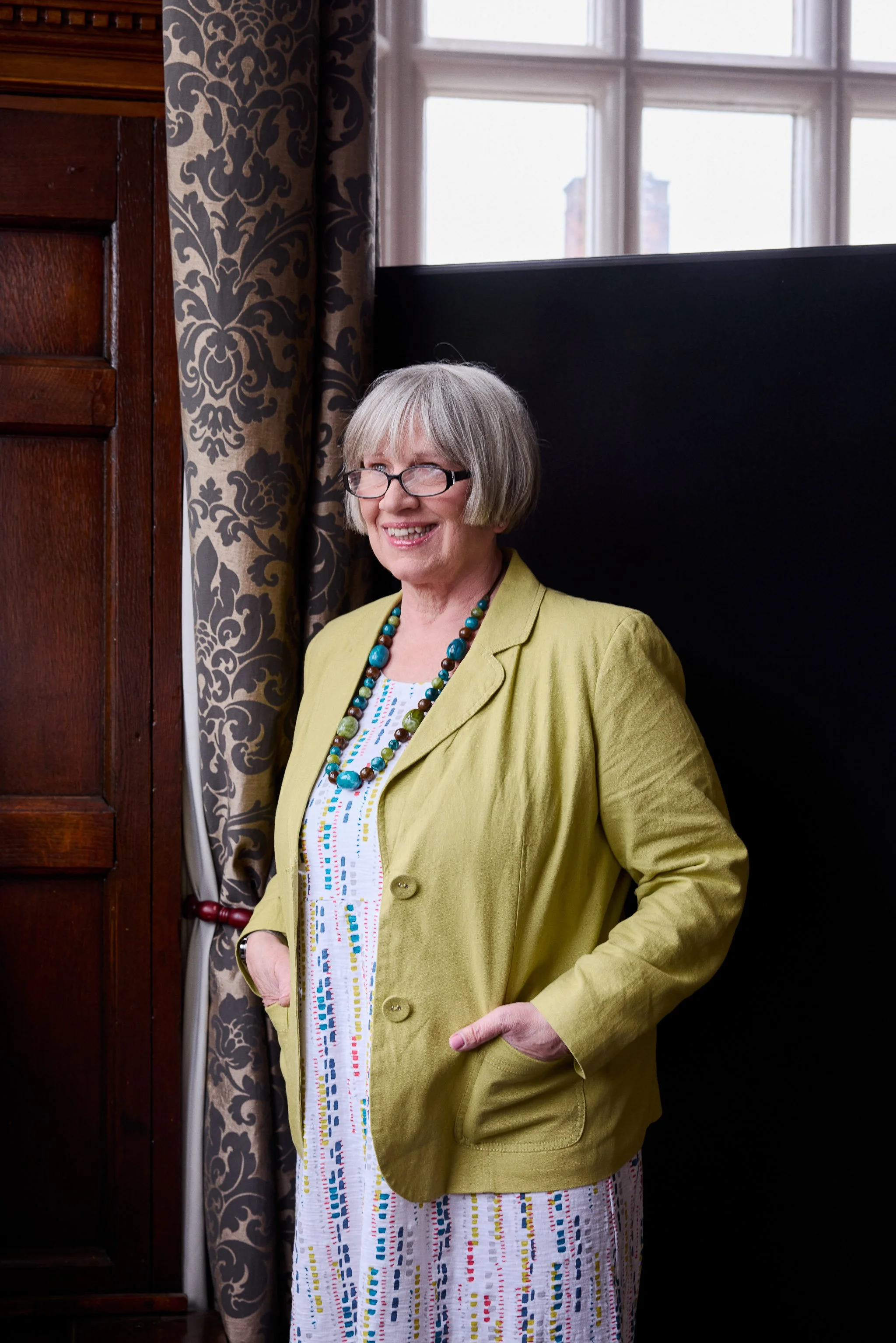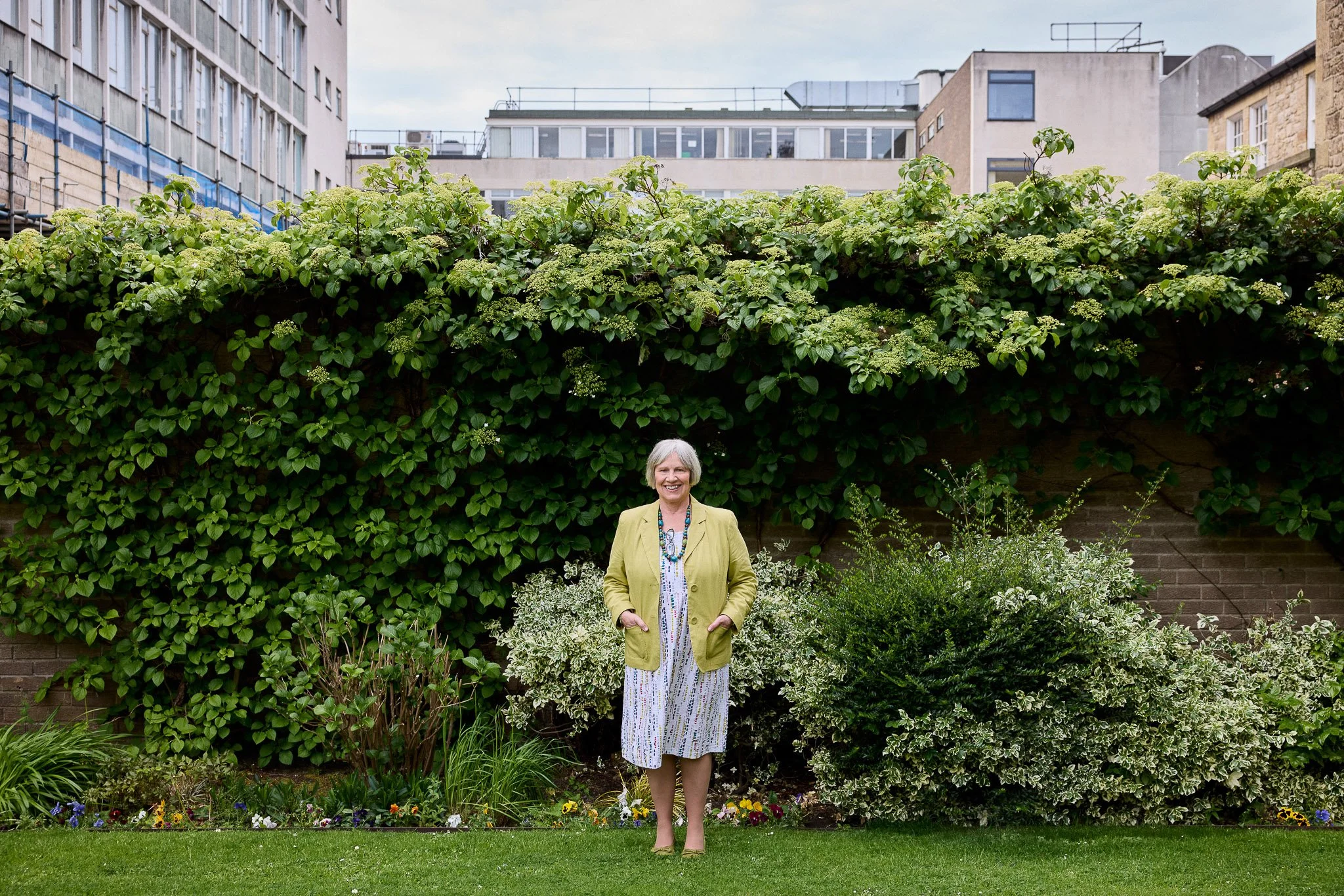HUNGER
FOR CHANGE
Professor Greta Defeyter OBE
Professor Greta Defeyter OBE’s work tackling childhood hunger is remarkable, but her life is even more so. Her story could come from the pages of a novel with a hippy commune in Key West, time in a South African prison, and a race across the border with a newborn… all before gaining a PhD as a single mother and forging an influential career. The thread through it all is a desire for change, as she explains..
Interview by Arlen Pettitt
Photographs by Christopher Owens
Greta Defeyter was helping a PhD student with her research when she had the sudden revelation which gave her work the focus it still carries today.
“It was twenty years ago. I can remember it as though it was yesterday,” Greta says. “It was whilst I was on a trip with her, helping her with her research, that I went to a school, and I saw a school breakfast club.”
“I had no idea what this was,” she continues, “so I rather stupidly said to the head teacher, ‘what's that?’ and she said ‘it's the school breakfast club and I said ‘why is that little boy stuffing toast into his backpack and pockets?’”
That seven year old boy was hungry, but more than that, he knew when he got home his mum would be at work and his baby sister would be hungry too.
That’s why he was taking the toast with him.
“The pull of this social injustice, that we had children in the UK that were living in such dire poverty that they were taking home cold toast, stuck with me, and it’s stuck with me ever since.”
Defeyter had been a cognitive psychologist and her research was all about controlled experiments and the impact on children’s attention and capacity for learning - 35 grams of cereal, 125ml of semi-skimmed milk. Do some tests, observe some tasks, make some notes, change the variables.
Having seen that little boy, Greta changed her whole field of research.
“The pull of this social injustice,” she says, “that we had children in the UK that were living in such dire poverty that they were taking home cold toast, stuck with me, and it’s stuck with me ever since.”
Defeyter grew up in a rural area of north Norfolk, and credits her mother with nurturing her sense of justice by taking her into London to support protests against racism.
At school Defeyter initially struggled with what she now knows was undiagnosed ADHD. A tendency to talk back, and get frustrated with the pace of classes, led to her being excluded from primary school.
There weren’t many other options nearby, and so her family dug deep to send her to private school for a year, before she passed her Eleven Plus and went to the local girls grammar school.
It suited her and she left with a full set of O-Levels and four A-levels.
“I was very, very lucky with my mum,” Defeyter says. “She probably thought ‘I've got this girl on the right track. Got her into the grammar.’”
She pauses.
“Then I ran off and lived in the hippie commune for ten years in the Florida Keys.”
Greta lived initially on a houseboat, making leather handbags to sell and watching the dolphins. She married an American man, and was settled with a green card.
Many of those in the community she was living in had a history of protest, in particular against the Vietnam War, and they were collectively appalled at what they were seeing happening in apartheid South Africa.
“One of the friends I had in the commune had some friends in South Africa,” Greta says, “and we went over to Joburg to just mix with friends that were of similar ilk.”
“When we're over there, they were going on active protests against the apartheid,” she continues. “These were people that were Black, white, mixed race, just all kinds of different people, lawyers, hippies, dropouts, mothers, everybody, everyone was going on it.”
They hadn’t travelled with the intention of protesting, but having decided to take part, Defeyter did so with her eyes open and knowing the consequences should she be arrested.
“I sat in the Black area of the bus and wouldn't get off,” she explains. “So, the police dragged me off and I spent just over six months in a prison in Central Pretoria.”
While her case was passed backwards and forwards between Britain and the US, as a national of one and a permanent resident of the other, Defeyter dealt with incredibly difficult conditions, included gender-based torture.
She remembers being forced to stand while menstruating, and being questioned while they withheld sanitary protection.
“That’s stayed with me, you can probably hear it in my voice.”
Although she understandably does on that occasion, Defeyter rarely falters, even when talking about incredibly traumatic events from her own life or the trials she’s witnessed through her work.
Her experience in prison galvanised her, and she saw the collective spirit of the women imprisoned with her where what little they had was shared.

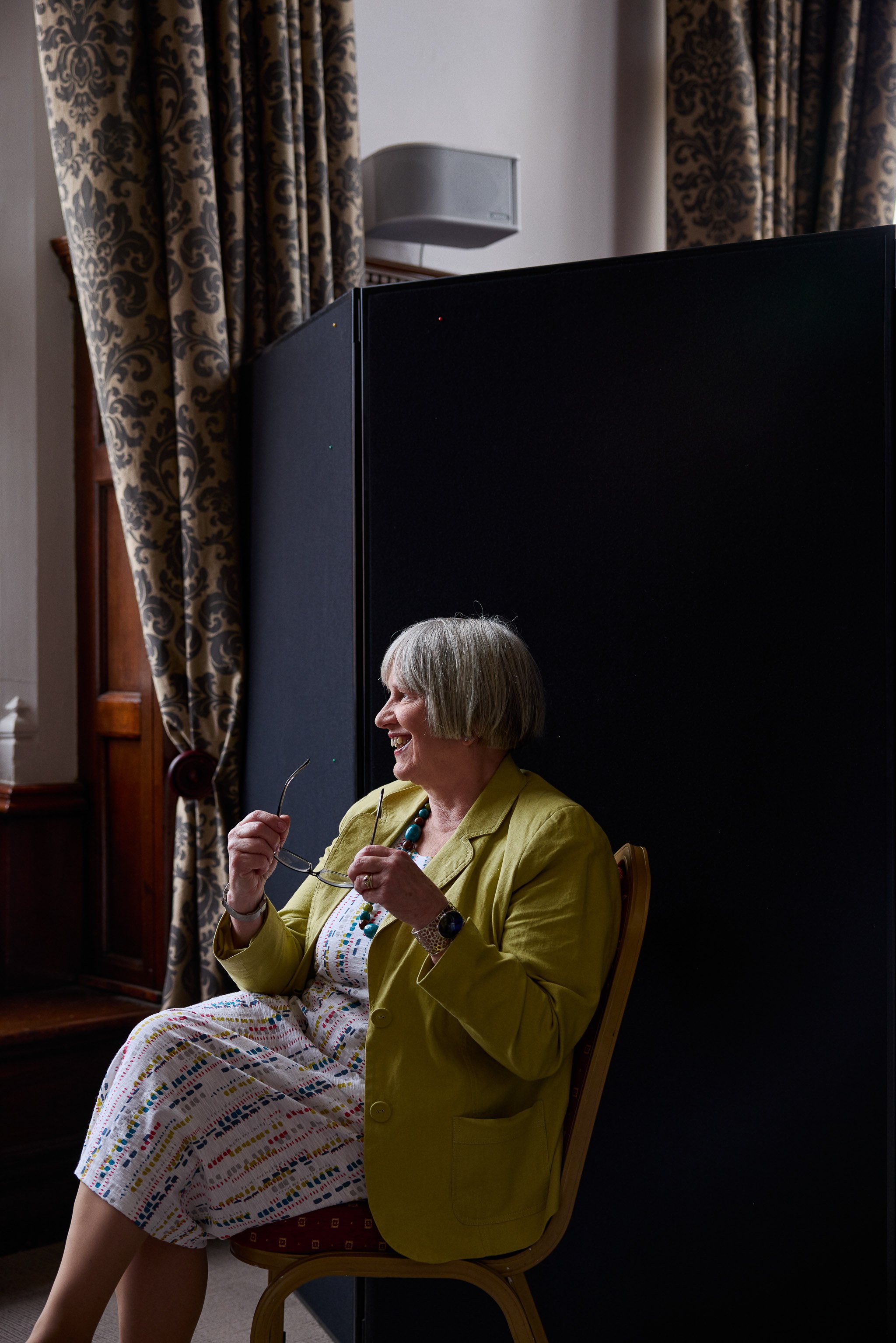
“I sat in the Black area of the bus and wouldn't get off. So, the police dragged me off and I spent just over six months in a prison in Central Pretoria.”
When she left prison, Defeyter met Winnie Mandela and then went on a visit where she also met Nelson Mandela.
Reflecting on the whole experience - travelling to South Africa, protesting, facing the consequences - Greta gives a response which cuts right to her character.
“I just thought it was the right thing to do,” she says.
That would be plenty for most lives, but is just a chapter in Prof Defeyter’s story.
After she returned to live in the US, her husband passed away.
She remarried, and her second husband had an affair - something Greta found out in the most distressing way possible.
“I was in Florida Keys Memorial Hospital with a newborn baby, and he didn’t come to pick me up from the hospital,” she begins.
“So, I discharged myself, went home and the house was boarded and locked up. He’d sold the house and the car, and gone off with the other woman.”
Not content with that, he had also issued a port alert to prevent her from leaving the country with the baby, knowing she’d likely try to return to the UK for the support of her family.
With nothing, and unable to fly out of the US, a friend drove Greta and her newborn son the length of the I95 - nearly two-thousand miles - from Florida across the Canadian border.
The friend then gave Greta the money to fly home.
“My darling mother, who was then 73,” Defeyter remembers, “said ‘Okay, come live with us, we’ll manage, don’t worry, come home.’ And I did.”
Just as she’d helped Greta find the right path when she’d struggled at school, her mother guided and motivated her as she put her life back together.
With encouragement, Defeyter took evening classes at Lowestoft College, and applied to study psychology at the University of Essex.
She loved it, and speaks highly of the support and flexibility the university offered her which meant she stayed to do a PhD and a post-doc.
While studying at Essex she met Nelson Mandela for the second time, on British soil this time, when the South African President visited the university in 1997.
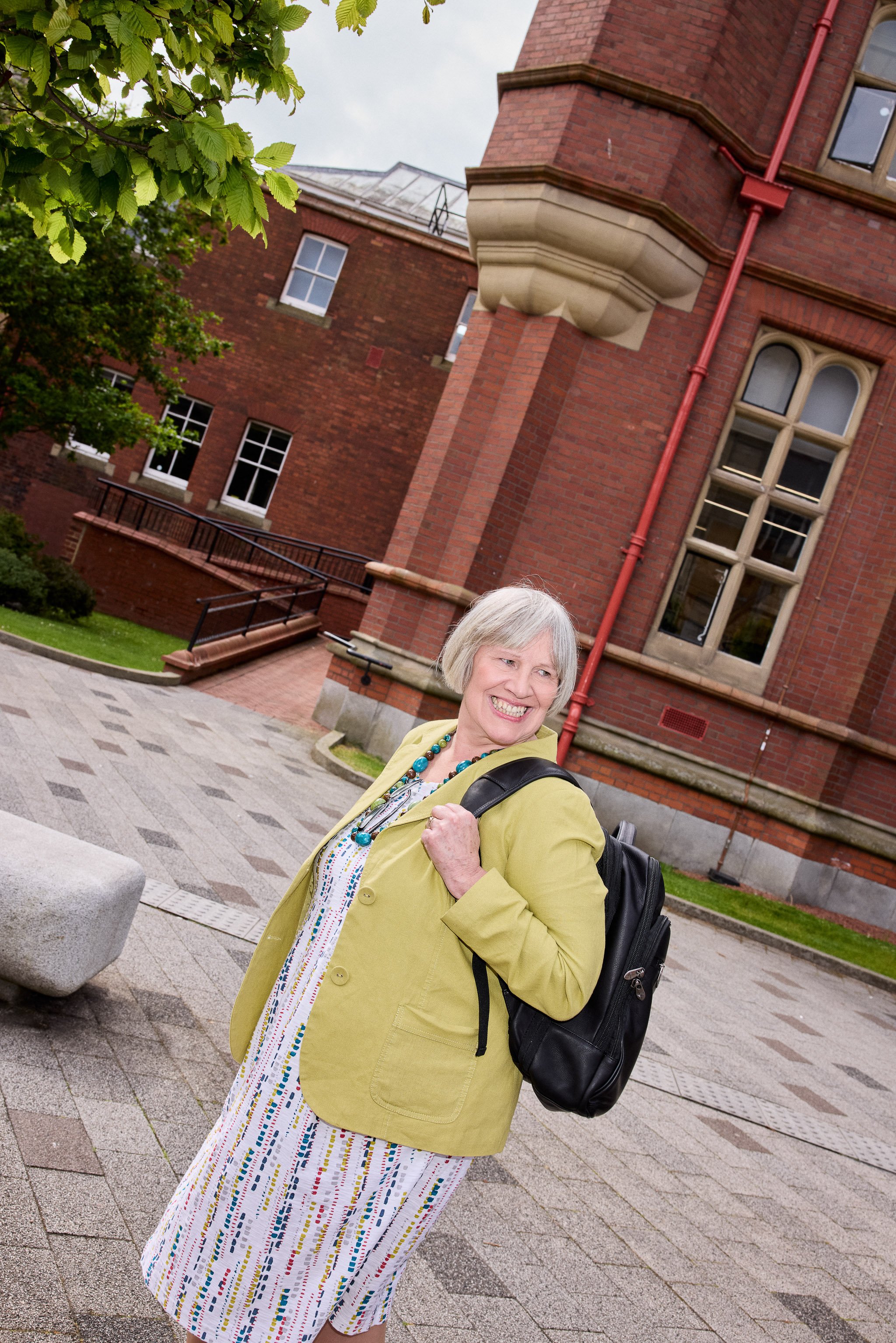
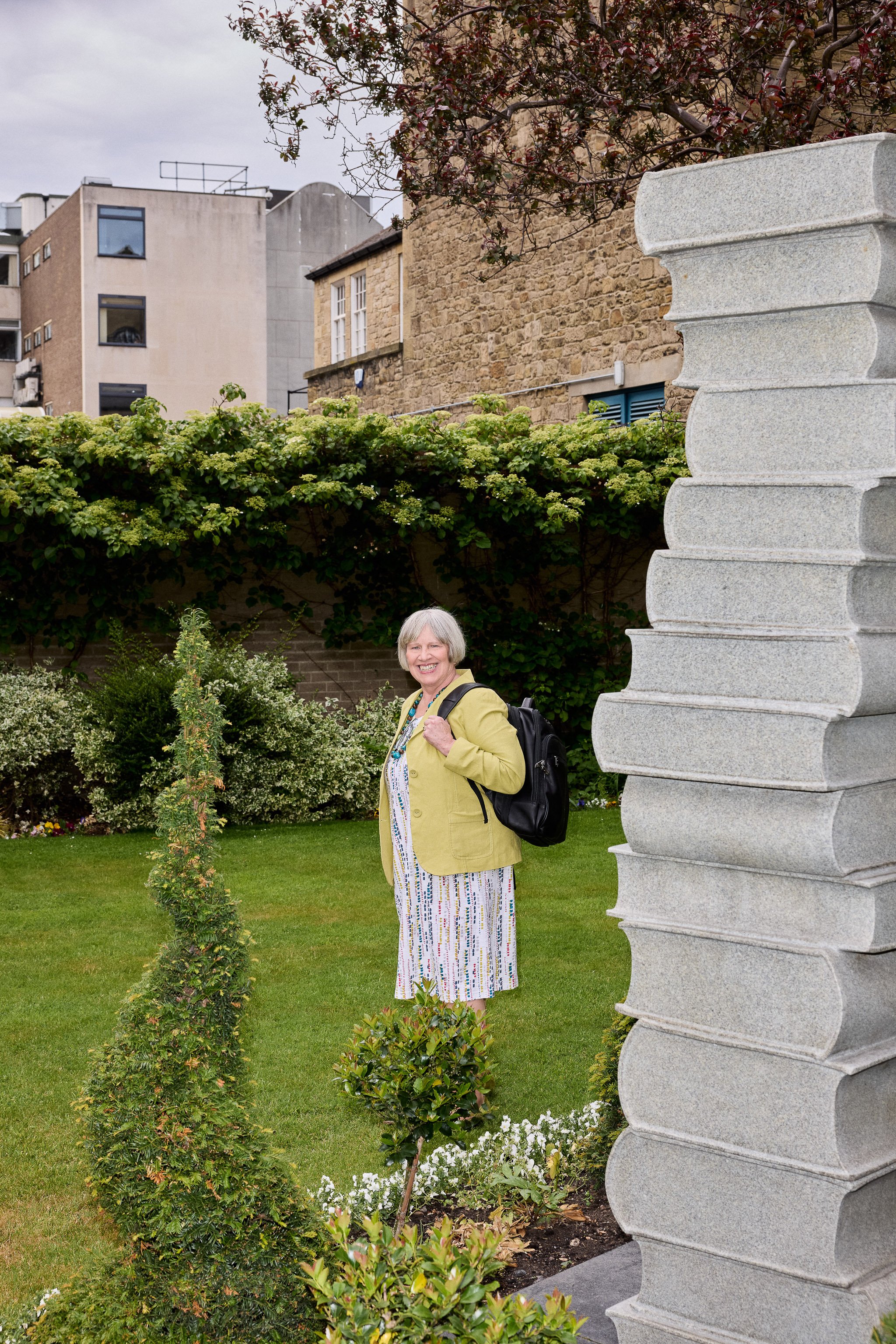
Following her PhD, Defeyter took a job at Northumbria University.
“I had no intention of coming up north,” she remembers. "In fact, I remember the train journey. I got to York, and I thought I was falling off the edge of the world. I got to Newcastle, and I have no idea to this day what the taxi driver said to me, but I thought this place seems quite nice!”
This was in the early 2000s, and it was a big leap to take, away from East Anglia where she’d grown up and where she’d rebuilt her life after returning from the US.
It was also a big decision to make to move away from family and into the unknown as the single mother of a mixed race child with neurodiverse needs.
As an academic with a specialism which involved working with children, it’s interesting to hear how she approaches being a parent herself, and what that meant for her son.
“He was a winner in the sense that, like most parents, I love him to bits,” she says. “I still love him to bits. He's six foot one, and I have to make him sit on the bottom step of the stairs when I have to have a word with him!”
Greta and her son share an ADHD diagnosis, and her experience helped her understand him.
“Things that my son would do as a child growing up,” she says, “that would have caused real problems maybe in other families or been difficult for parents to deal with were just easy for me. In his early years, I was like a lioness, I would fight tooth and nail.”
There was an inevitable juggling act, especially as her now husband didn’t enter her life until her son was in his teens, and so for those early years it was just the two of them.
“I think my son lost in the sense that I was a single mum. I was going to university. I was studying. I was working part time, albeit for a few days before I got sacked,” she says, referencing the two occasions when she’s been sacked from Tesco for ‘creative shelf-stacking’.
Being dedicated to working with other young people meant he had to share her quite a lot of the time.
“I graduated with my PhD in a pair of hiking boots because that's all I had.”
Prof Defeyter’s work is influential, and at the centre of it is the £200 million holiday activity and food (HAF) programme.
Defeyter worked with the Department of Education and a range of others to co-design the programme, which targets children and young people who receive free school meals and makes sure they are able to access services during the school holidays.
A HAF+ programme, designed with teenagers in mind, has since been developed and also includes elements aimed at skills, employability and social mobility.
Now rolled out to local authorities across the country, the programmes began life in the North East.
Defeyter now sits on the advisory group for the Government’s breakfast club programme, currently being trialled in 750 primary schools.
She’s currently working on projects looking at shorter supply chains, to help communities access local nutritious food through things like community markets and pop-up pantries.
There’s also a big bit of work around auto-enrolment for free school meals, which involves data-sharing between a variety of agencies to make sure all those who are eligible access it, for example when contacting a local authority housing team, or when applying for Universal Credit.
She feels a connection with the communities she’s working to support, having lived in poverty herself.
“I graduated with my PhD in a pair of hiking boots because that's all I had,” she remembers of a time when as a single mum she struggled to find work which fit around study and childcare.
“Whether it's a bishop or a minister or a young lad in Ashington, it doesn't matter because they all know that I'm true to what I value. I’m the same person.”
There’s an authenticity and a sense of grounding to Greta which helps build trust with those she works with.
To some, the world of policymakers and politicians would be an intimidating one, but that doesn’t seem to be the case for Defeyter.
She recalls one occasion of being at a parliamentary roundtable, flicking through her copy of the briefing which was in front of everyone and wondering aloud “which idiot wrote this?” only to realise that idiot was sitting immediately to her left.
That candor aside, her approach typically comes from a place of mutual respect.
“You go to politics because you're really interested in it and you want to make a change,” she explains. “Your method of change and your beliefs about change may be different to mine, but I can respect you. I should respect you because you're a democratically elected Member of Parliament.”
She matches that by holding up her end of the bargain, something which she believes is recognised.
“My perception is they know that I really know my stuff and that I will say honestly what I think the data and the research shows,” she says.
“Whether it's a bishop or a minister or a young lad in Ashington,” she continues, “it doesn't matter because they all know that I'm true to what I value. I’m the same person”
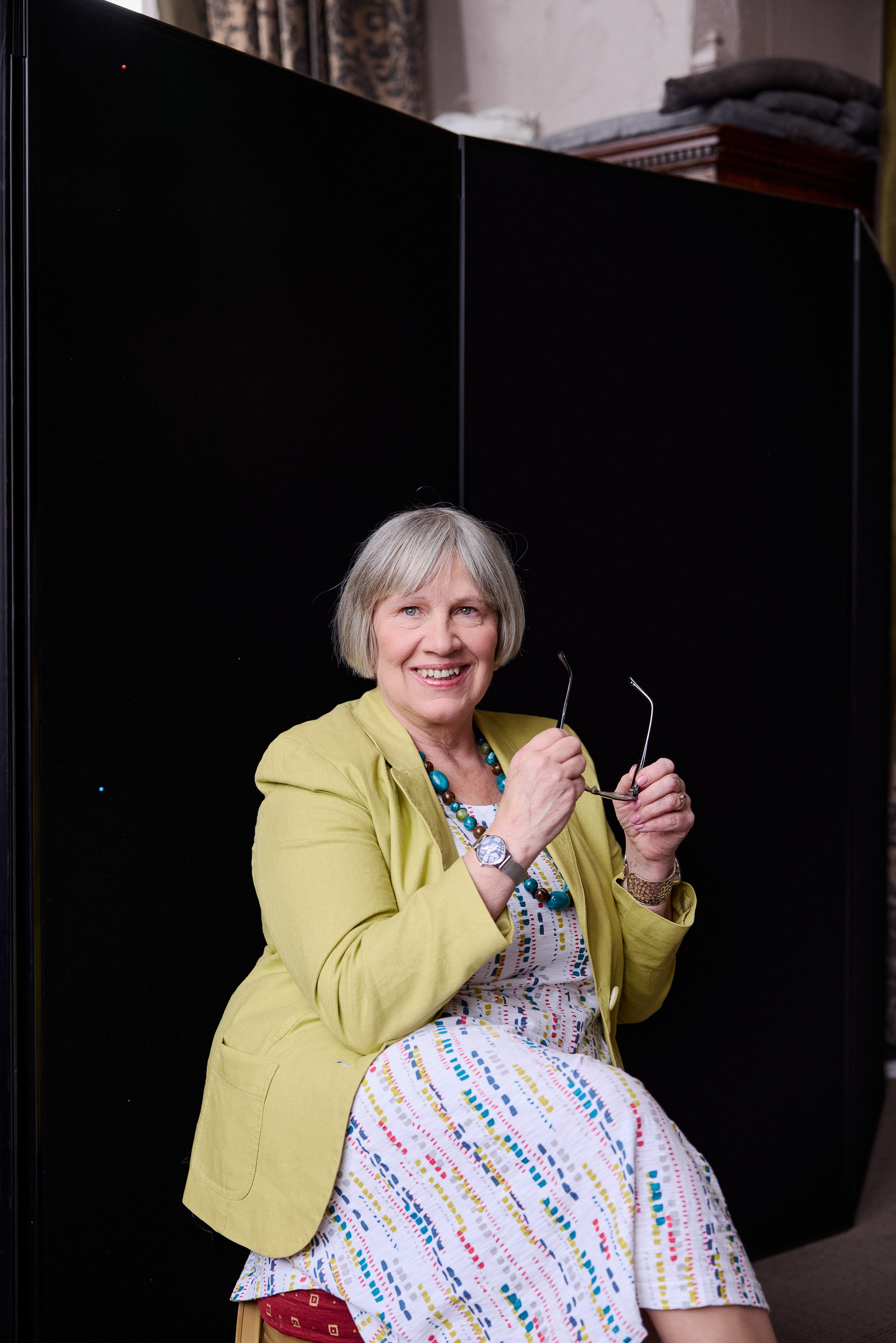
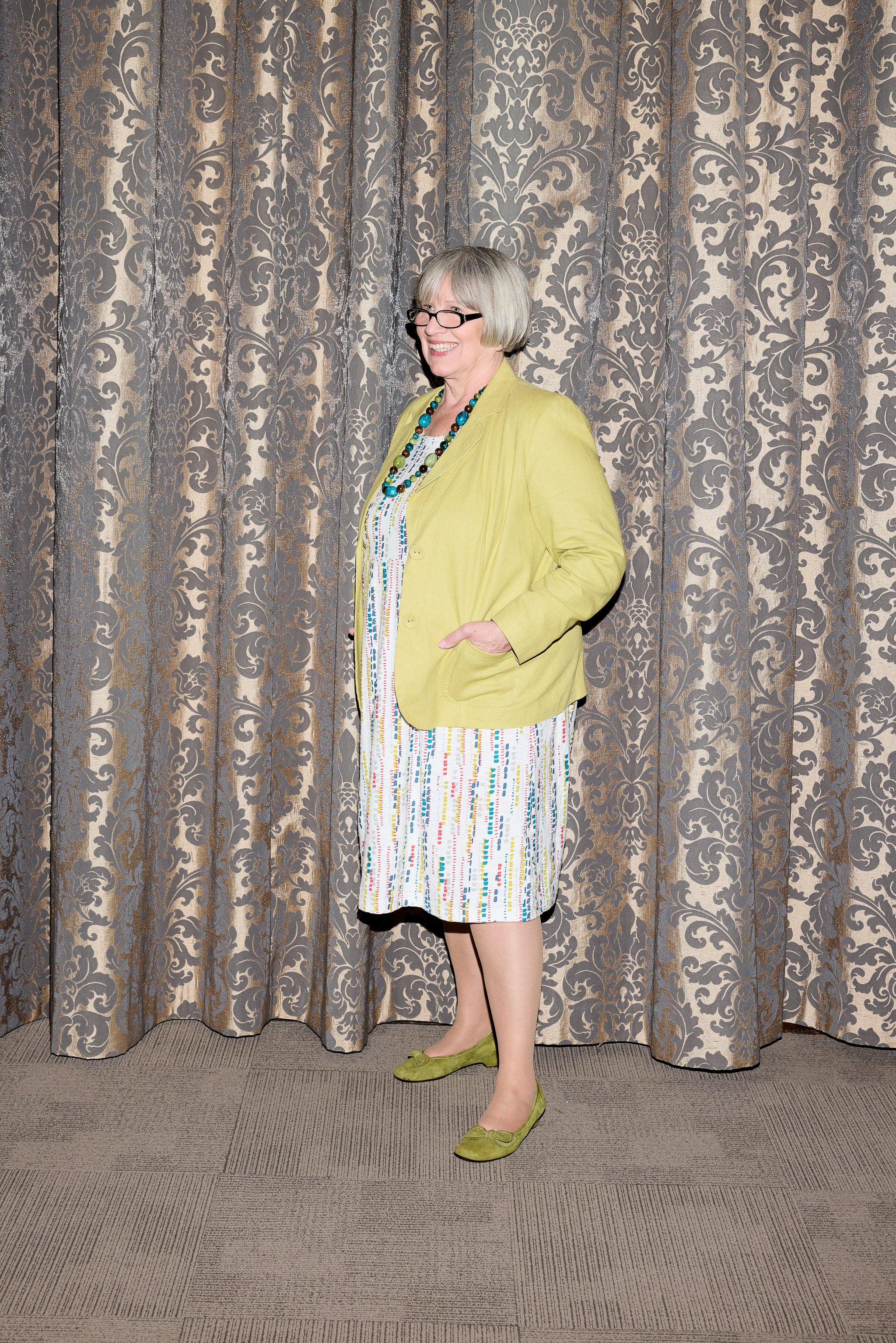
The issues need a robust advocate like Defeyter, because hunger and poverty are problems that are becoming more commonplace and more deeply felt.
“I think the scale of the problem is huge,” she says, “and I think the scale of the problem has been increasing - not even slowly - every year for many years.”
Prof Defeyter talks passionately about food deserts, junk food advertising aimed at young children, the painfully low income thresholds for accessing things like free school meals, and the way in which schools find themselves forced to plug food budget shortfalls with funds meant for teaching and pupil support.
Children need both health and an education, she says, and “robbing one to pay the other will not drive you any further forward.”
Her passion for social justice, born decades ago and now a professional calling, is all about driving things forward.
Greta’s research and her influence combines a desire for big, systemic change with the practical, tangible steps to get there.
It’s a balance that eludes most policymakers, and most academics, but Greta Defeyter’s not like most people.
Connect


